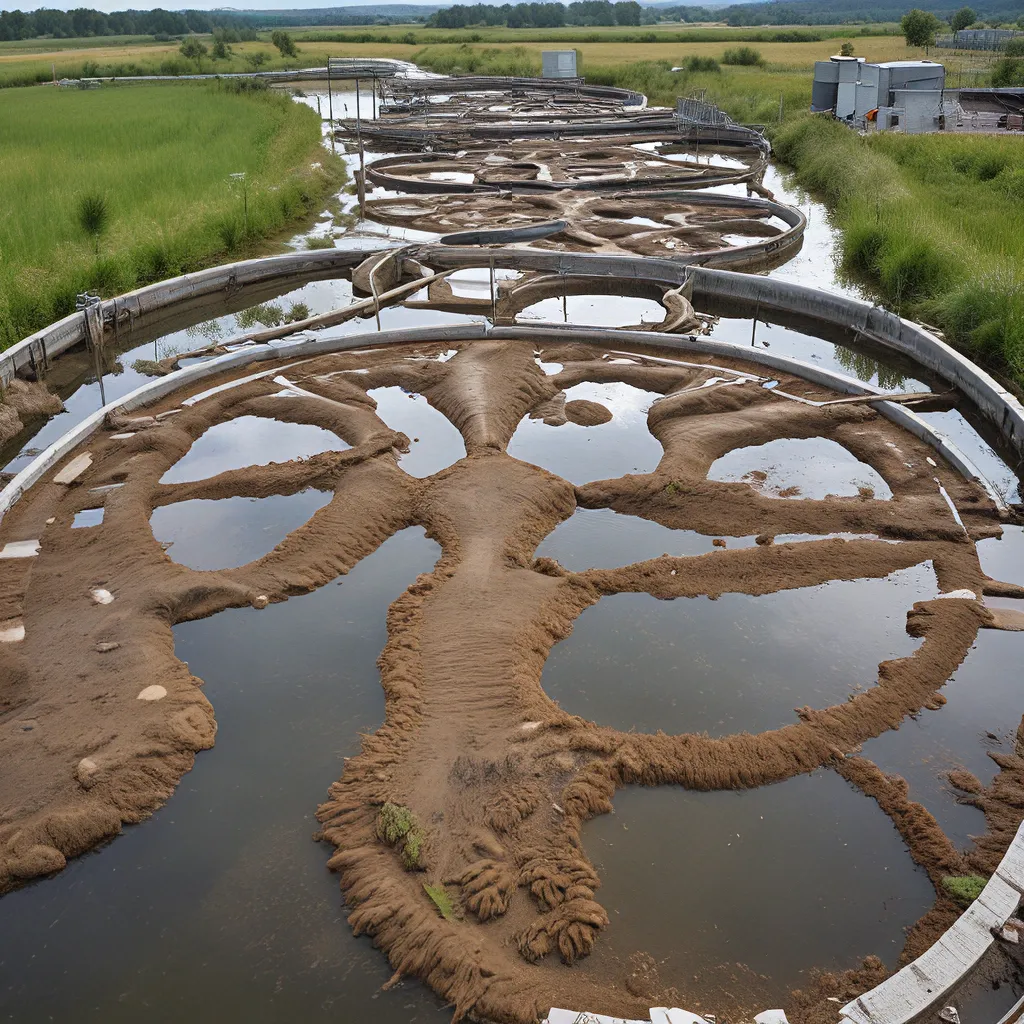
As a wastewater treatment services provider, I’ve always been fascinated by the incredible potential of microorganisms. These tiny lifeforms possess an astonishing ability to transform our most challenging waste streams into valuable resources. It’s like unlocking hidden superpowers right under our noses!
Let me tell you, the world of wastewater treatment is about to get a major upgrade, thanks to the remarkable feats that microbes can accomplish. Imagine a future where our wastewater doesn’t just disappear down the drain, but becomes a hub of activity, with microbes hard at work, converting it into clean water, biofuels, and even construction materials. It’s a vision of a true circular bioeconomy – where waste becomes the foundation for a sustainable tomorrow.
But this isn’t just some far-fetched fantasy. The cutting-edge research happening in the field of microbial biotechnology is already paving the way for these transformative changes. From space exploration to soil remediation, microbes are proving themselves to be the unsung heroes we never knew we needed.
So, buckle up, folks, because we’re about to dive deep into the fascinating world of wastewater treatment and how microbial processes are revolutionizing the way we approach sustainability, resource recovery, and the future of our planet. Trust me, you’re going to be amazed!
Microbes: The Unsung Heroes of Wastewater Transformation
Let’s start with the basics: wastewater treatment is a crucial process that helps remove contaminants and pollutants from water, ensuring it’s safe for human use and the environment. But here’s the thing – traditional treatment methods have always relied heavily on energy-intensive physical and chemical processes. That’s where microbes come in to save the day!
These microscopic marvels possess an incredible ability to break down organic matter, remove nutrients, and even extract valuable resources from wastewater. It’s like they’re nature’s own little recycling experts, transforming our waste into something useful and sustainable.
For example, did you know that cyanobacteria can be used to capture and sequester carbon dioxide from the air, while also producing oxygen? It’s a win-win situation! And that’s just the tip of the iceberg. Microbes can also help with nitrogen recovery, bioremediation of heavy metals, and even the production of biofuels and bioplastics.
Closing the Loop: Wastewater and the Circular Bioeconomy
One of the most exciting aspects of harnessing the power of microbes in wastewater treatment is the potential to create a true circular bioeconomy. Instead of viewing wastewater as a burden to be disposed of, we can start seeing it as a valuable resource, full of untapped potential.
Imagine a world where our wastewater treatment plants don’t just clean the water, but also become hubs of resource recovery and upcycling. Think about it – the nutrients, organic matter, and even the energy contained in wastewater could be extracted and repurposed, creating a truly sustainable cycle.
Alpha Wastewater is at the forefront of this revolution, exploring innovative ways to leverage microbial processes to transform wastewater into a valuable resource. By integrating cutting-edge biotechnologies into their treatment systems, they’re able to recover resources, generate renewable energy, and even produce biobased materials – all while reducing the environmental impact of traditional wastewater management.
It’s a bold vision, I know, but the science is there to back it up. Researchers around the world are making incredible strides in understanding how microbes can be harnessed to create a more sustainable future. From space exploration to soil remediation, the potential applications are truly mind-boggling.
Microbes in Space: Sustaining Human Presence Beyond Earth
One of the most fascinating areas of microbial biotechnology is its application in space exploration. As humans venture further into the cosmos, the need for sustainable, self-sufficient systems becomes increasingly critical. And guess who’s ready to lend a helping hand? You guessed it – our microscopic allies, the microbes.
Recent research has highlighted the incredible potential of microbes to support life-support systems, resource utilization, and even the production of essential compounds like pharmaceuticals in the harsh environment of space.
Imagine a future where astronauts can rely on microbial bioreactors to recycle their wastewater, generate oxygen, and even produce their own food and biofuels – all without the need for constant resupply from Earth. It’s a game-changer that could make long-duration space missions and extraterrestrial settlements a reality.
But the benefits of this research don’t stop there. The innovative microbial biotechnologies developed for space exploration can also be translated back to Earth, helping us tackle pressing environmental challenges right here at home. From soil remediation to waste management, the lessons learned from the cosmos could be the key to unlocking a more sustainable future for our planet.
Microbes: The Secret Superheroes of Wastewater Treatment
As I delve deeper into the world of microbial biotechnology, I can’t help but be in awe of these tiny, yet incredibly powerful organisms. They’re the unsung heroes of wastewater treatment, quietly transforming our waste into valuable resources, all while reducing our environmental impact.
But the best part is, we’re just scratching the surface of their capabilities. With continued research and innovation, the possibilities are endless. Who knows what other amazing feats these microscopic marvels have up their sleeves? One thing’s for sure – the future of wastewater treatment is looking brighter than ever, and it’s all thanks to the incredible power of microbes.
So, my friends, the next time you flush the toilet or turn on the tap, take a moment to appreciate the hard-working microbes that are making it all possible. They may be small, but they’re mighty, and they’re paving the way for a more sustainable, circular future. It’s time to give these unsung heroes the recognition they deserve!